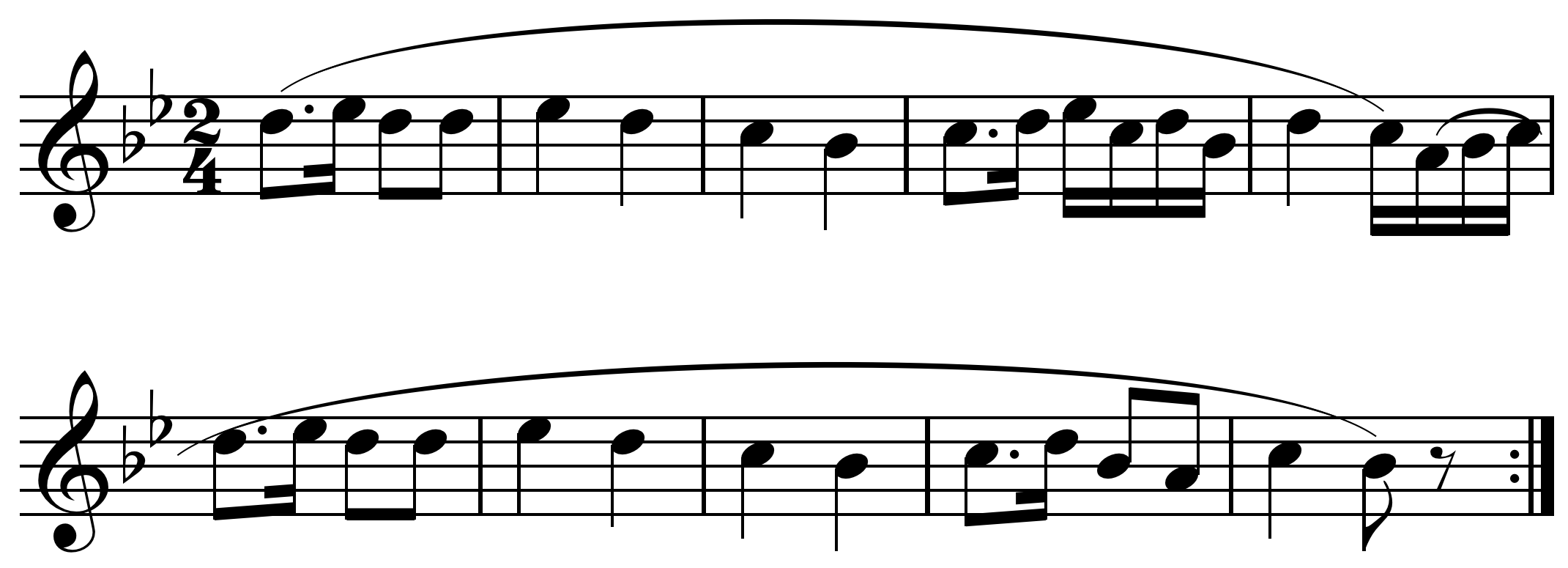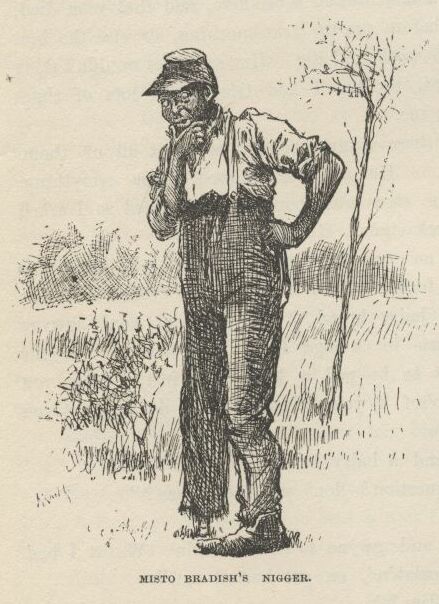|
Oh! Susanna
"Oh! Susanna" is a folk song by Stephen Foster (1826–1864), first published in 1848. It is among the most popular American songs ever written. Members of the Western Writers of America chose it as one of the Top 100 Western songs of all time. Background In 1846, Stephen Foster moved to Cincinnati, Ohio, and became a bookkeeper with his brother's steamship company. While in Cincinnati, Foster wrote "Oh! Susanna", possibly for his men's social club. The song was first performed by a local quintet at a concert in Andrews' Eagle Ice Cream Saloon in Pittsburgh, Pennsylvania, on September 11, 1847. It was first published by W. C. Peters & Co. in Cincinnati in 1848. Blackface minstrel troupes performed the work, and, as was common at the time, many registered the song for copyright under their own names. As a result, it was copyrighted and published at least twenty-one times from February 25, 1848, through February 14, 1851. Foster earned just $100 ($ in 2016 dollars) for the song, b ... [...More Info...] [...Related Items...] OR: [Wikipedia] [Google] [Baidu] |
Stephen Foster
Stephen Collins Foster (July 4, 1826January 13, 1864), known as "the father of American music", was an American composer known primarily for his parlour music, parlour and Folk music, folk music during the Romantic music, Romantic period. He wrote more than 200 songs, including "Oh! Susanna", "Hard Times Come Again No More", "Camptown Races", Old Folks at Home, "Old Folks at Home" ("Swanee River"), "My Old Kentucky Home", "Jeanie with the Light Brown Hair", "Old Black Joe", and "Beautiful Dreamer". Many of his compositions remain popular today. Early life There are many biographies of Foster, but details differ widely. Among other issues, Foster wrote very little biographical information himself, and his brother Morrison Foster may have destroyed much information that he judged to reflect negatively upon the family. Foster was born on July 4, 1826, in Lawrenceville (Pittsburgh), Lawrenceville, Pennsylvania. His parents, William Barclay Foster and Eliza Clayland Tomlinson Fos ... [...More Info...] [...Related Items...] OR: [Wikipedia] [Google] [Baidu] |
Phrase (music)
In music theory, a phrase () is a unit of Meter (music), musical meter that has a complete musical sense of its own, built from figure (music), figures, motif (music), motifs, and Cell (music), cells, and combining to form Melody, melodies, period (music), periods and larger Section (music), sections. Terms such as ''sentence'' and ''verse'' have been adopted into the vocabulary of music from linguistic syntax. Though the analogy between the musical and the phrase, linguistic phrase is often made, still the term "is one of the most ambiguous in music....there is no consistency in applying these terms nor can there be...only with melodies of a very simple type, especially those of some dances, can the terms be used with some consistency." John D. White defines a phrase as "the smallest musical unit that conveys a more or less complete musical thought. Phrases vary in length and are terminated at a point of full or partial repose, which is called a ''cadence''." Edward T. Cone, ... [...More Info...] [...Related Items...] OR: [Wikipedia] [Google] [Baidu] |
The Singing Dogs
The Singing Dogs was a Danish musical recording project in the 1950s by recording engineer and ornithologist Carl Weismann and record producer Don Charles based around manipulated recordings of dogs barking. Carl Weismann, while recording the sounds of birds for other projects, ended up with many recordings that were spoiled by dogs barking. Weismann found a new use for these spoiled takes by splicing together the pitches of dog barks into the pattern of songs. He teamed up with Don Charles, a record producer working in Copenhagen, Denmark (not to be confused with English singer and record producer Don Charles).Joel Whitburn, ''Top Pop Singles 1955-2008''. Record Research, Milwaukee, WI, 2009. Weismann used recordings of five dogs barking (their names were Dolly, Pearl, Pussy, Caesar, and King), spliced them on reel-to-reel tape, and arranged the pitches to the tune of the Stephen Foster song "Oh! Susanna". Charles provided the musical accompaniment. This was released by RCA Vict ... [...More Info...] [...Related Items...] OR: [Wikipedia] [Google] [Baidu] |
Novelty Record
A novelty song is a type of song built upon some form of novel concept, such as a gimmick, a piece of humor, or a sample of popular culture. Novelty songs partially overlap with comedy songs, which are more explicitly based on humor, and with musical parody, especially when the novel gimmick is another popular song. Novelty songs achieved great popularity during the 1920s and 1930s. They had a resurgence of interest in the 1950s and 1960s. The term arose in Tin Pan Alley to describe one of the major divisions of popular music; the other two divisions were ballads and dance music. Humorous songs, or those containing humorous elements, are not necessarily novelty songs. Novelty songs are often a parody or humor song, and may apply to a current event such as a holiday or a fad such as a dance or TV program. Many use unusual lyrics, subjects, sounds, or instrumentation, and may not even be musical. For example, the 1966 novelty song " They're Coming to Take Me Away, Ha-Haaa! ... [...More Info...] [...Related Items...] OR: [Wikipedia] [Google] [Baidu] |
Harry C
Harry may refer to: Television * ''Harry'' (American TV series), 1987 comedy series starring Alan Arkin * ''Harry'' (British TV series), 1993 BBC drama that ran for two seasons * ''Harry'' (New Zealand TV series), 2013 crime drama starring Oscar Kightley * ''Harry'' (talk show), 2016 American daytime talk show hosted by Harry Connick Jr. People and fictional characters *Harry (given name), a list of people and fictional characters with the given name, including **Prince Harry, Duke of Sussex (born 1984) *Harry (surname), a list of people with the surname Other uses *"Harry", the tunnel used in the Stalag Luft III escape Stalag Luft III (; literally "Main Camp, Air, III"; SL III) was a ''Luftwaffe''-run German prisoner-of-war camps in World War II, prisoner-of-war (POW) camp during the Second World War, which held captured Allies of World War II, Western Allied ... ("The Great Escape") of World War II * ''Harry'' (album), a 1969 album by Harry Nilsson * Harry (derogatory term ... [...More Info...] [...Related Items...] OR: [Wikipedia] [Google] [Baidu] |
Pennsylvania Dutch
The Pennsylvania Dutch (), also referred to as Pennsylvania Germans, are an ethnic group in Pennsylvania in the United States, Ontario in Canada, and other regions of both nations. They largely originate from the Palatinate (region), Palatinate region of Germany, and settled in Pennsylvania during the 17th, 18th, and 19th centuries. While most were from the Palatinate region of Germany, a lesser number were from other German language, German-speaking areas of Germany and Europe, including Baden-Württemberg, Hesse, Saxony, and Rhineland in Germany, Switzerland, and the Alsace–Lorraine region of France. The Pennsylvania Dutch are either monolingual English speakers or bilingual speakers of both English and the Pennsylvania Dutch language, which is also commonly referred to as Pennsylvania German.Mark L. Louden: Pennsylvania Dutch: The Story of an American Language. JHU Press, 2006, pp. 1-2; pp. 60-66; pp. 342-343. Linguistically it consists of a mix of High German, German dia ... [...More Info...] [...Related Items...] OR: [Wikipedia] [Google] [Baidu] |
Gold Panning
Gold panning, or simply ''panning'', is a form of placer mining and traditional mining that extracts gold from a placer deposit using a pan. The process is one of the simplest ways to extract gold, and is popular with geology enthusiasts especially because of its low cost and relative simplicity. The first recorded instances of placer mining are from ancient Rome, where gold and other precious metals were extracted from streams and mountainsides using sluices and panning (). However, the productivity rate is comparatively smaller compared to other methods such as the rocker box or large extractors, such as those used at the Super Pit gold mine, in Kalgoorlie, Western Australia, which has led to panning being largely replaced in the commercial market. Process Gold panning is a simple process. Once a suitable placer deposit is located, some alluvial deposits are scooped into a pan, where they are then wetted and loosed from attached soils by soaking, fingering, and aggress ... [...More Info...] [...Related Items...] OR: [Wikipedia] [Google] [Baidu] |
California Gold Rush
The California gold rush (1848–1855) began on January 24, 1848, when gold was found by James W. Marshall at Sutter's Mill in Coloma, California. The news of gold brought approximately 300,000 people to California from the rest of the United States and abroad. The sudden influx of gold into the money supply reinvigorated the American economy; the sudden population increase allowed California to grow rapidly into statehood in the Compromise of 1850. The gold rush had severe effects on Native Californians and accelerated the Native American population's decline from disease, starvation, and the California genocide. The effects of the gold rush were substantial. Whole indigenous societies were attacked and pushed off their lands by the gold-seekers, nicknamed "forty-niners" (referring to 1849, the peak year for gold rush immigration). Outside of California, the first to arrive were from Oregon, the Sandwich Islands (Hawaii), and Latin America in late 1848. Of the approx ... [...More Info...] [...Related Items...] OR: [Wikipedia] [Google] [Baidu] |
The Cincinnati Post
''The Cincinnati Post'' was an afternoon daily newspaper published in Cincinnati, Ohio, United States. In Northern Kentucky, it was Product bundling, bundled inside a local edition called ''The Kentucky Post''. The ''Post'' was a founding publication and onetime flagship of Scripps-Howard Newspapers, a division of the E. W. Scripps Company. For much of its history, the ''Post'' was the most widely read paper in the Cincinnati market. Its readership was concentrated on the West Side of Cincinnati, as well as in Northern Kentucky, where it was considered the newspaper of record. The ''Post'' began publishing in 1881 and launched its Northern Kentucky edition in 1890. It acquired ''The Cincinnati Times-Star'' in 1958. The ''Post'' ceased publication at the end of 2007, after 30 years in a Newspaper Preservation Act of 1970, joint operating agreement with ''The Cincinnati Enquirer''. Content The ''Post'' was known throughout its history for investigative journalism and focus on loc ... [...More Info...] [...Related Items...] OR: [Wikipedia] [Google] [Baidu] |
Oh Susanna, Or, - Don't You Cry For Me - The Celebrated Ethiopian Song As A Quick Step - Introducing Also Stop That Knocking At The Door (IA B10210994)
Oh, OH, or Oh! is an interjection, often proclaiming surprise. It may refer to: Arts and entertainment Music Albums * ''Oh!'' (Girls' Generation album), 2010 * ''Oh!'' (ScoLoHoFo album), 2003 * '' OH (ohio)'', by Lambchop, 2008 * ''Oh!'', an EP that came with the preorders of ''Oh! Gravity.'' by Switchfoot, 2006 Songs * " O (Oh!)", 1920 by Ted Lewis, 1953 by Pee Wee Hunt * "Oh" (Ciara song), 2005 * "Oh!" (Girls' Generation song), 2010 * "Oh!" (The Linda Lindas song), 2021 * "Oh!" (Pink Lady song), 1981 * "Oh" (Stray Kids song), 2021 * "Oh!", by Boys Noize from '' Oi Oi Oi'' * "Oh!", by The Breeders from '' Pod'' * "Oh", by Dave Matthews from '' Some Devil'' * "Oh", by Fugazi from '' The Argument'' * "Oh", by Juliana Hatfield from '' Made in China'' * "Oh!", by Micky Green from ''White T-Shirt'' * "Oh!", by Sleater-Kinney from '' One Beat'' * "Oh", by Spratleys Japs from ''Pony'' * "Oh!", by The Trudy * "Oh," by Underworld, recorded for the soundtrack to A Life Less O ... [...More Info...] [...Related Items...] OR: [Wikipedia] [Google] [Baidu] |
Nigger
In the English language, ''nigger'' is a racial slur directed at black people. Starting in the 1990s, references to ''nigger'' have been increasingly replaced by the euphemistic contraction , notably in cases where ''nigger'' is Use–mention distinction, mentioned but not directly used.Oxford English Dictionary Online, s.v. ''nigger, n. and adj''.; ''neger, n.'' ''and adj''.; ''N-word, n''. In an instance of linguistic reappropriation, the term ''nigger'' is also used casually and fraternally among African Americans, most commonly in the form of ''nigga'', whose spelling reflects the phonology of African-American English. The origin of the word lies with the Latin adjective ''wikt:niger#Latin, niger'' ([ˈnɪɡɛr]), meaning "black". It was initially seen as a relatively neutral term, essentially synonymous with the English word ''negro''. Early attested uses during the Atlantic slave trade (16th–19th century) often conveyed a merely patronizing attitude. The word took on ... [...More Info...] [...Related Items...] OR: [Wikipedia] [Google] [Baidu] |
Use Of Nigger In The Arts
This article treats the usage of the word ''nigger'' (now widely considered a ethnic slur, racial slur) in reference to African Americans and others of African diaspora, African or mixed race, mixed African and other ethnic origin in the art of Western culture and the English language. Literature The use of ''nigger'' in older literature has become controversial because of the word's historical and modern meaning as a racist insult. In the title ''Our Nig: Sketches from the Life of a Free Black'' is an autobiographical novel by Harriet E. Wilson, a free Negro herself. It was published in 1859 and rediscovered in 1981 by literary scholar Henry Louis Gates Jr. It is believed to be the first novel published by an African-American woman on the North American continent. In 1897, Joseph Conrad penned a novella titled ''The Nigger of the 'Narcissus''', whose titular character, James Wait, is a West Indian black sailor on board the merchant ship ''Narcissus'' sailing from Bombay to Lo ... [...More Info...] [...Related Items...] OR: [Wikipedia] [Google] [Baidu] |







